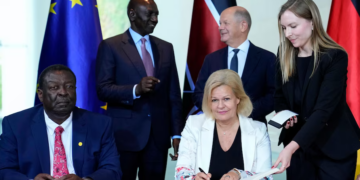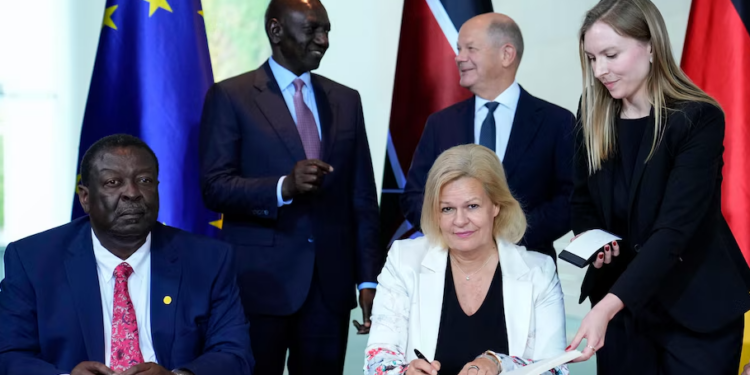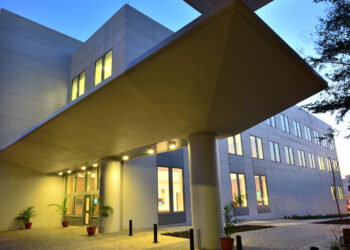By Ebi Kesiena
German and Kenyan officials signed an agreement in Berlin to promote the recruitment of skilled workers who can fill gaps in Germany’s labour market, and to facilitate the repatriation of Kenyans who don’t have the right to stay in Germany.
The agreement was signed during a visit to Germany by Kenyan President William Ruto, who met with German Chancellor Olaf Scholz.
Following the signing ceremony, Scholz described the agreement as a significant step towards strengthening collaboration between Germany and Kenya on migration issues.
“This can help us to compensate for a shortage of skilled workers,” Scholz said, adding that Germany is already feeling the impact of such a labor shortage and that it “will be with us for years and decades to come.”
Germany has struggled for years with the need to attract more skilled workers from outside the European Union.
Experts say the country needs about 400,000 skilled immigrants each year as its aging workforce shrinks.
“On the other side of the coin, so to speak, the agreement provides for effective return procedures for those who have come to us from Kenya but do not have or cannot acquire the right to stay here. They can now return home more easily and quickly,” Scholz said.
Ruto said the agreement benefits both sides because it brings together the potential of educated young Kenyans and German technology and resources.
He said that he wasn’t worried that the departure of some Kenyans could hurt his own nation’s development, noting that Kenya has a large population of young people, with the median age being around 20.
He said there were enough to support the further development of both Kenya and Germany.
Scholz said Germany would benefit from the large number of Kenyan IT specialists.
Germany has already signed similar agreements with India, Georgia and Morocco, and will sign one this weekend with Uzbekistan during a visit there by Scholz.
The agreement was signed by German Interior Minister Nancy Faeser and Kenyan’s Prime Cabinet Secretary Musalia Mudavadi in a ceremony at the chancellery in Berlin on Friday as Scholz and Ruto stood behind them.
Scholz’s unpopular coalition government is facing a challenge from the far-right, anti-immigration Alternative for Germany, or AfD, which did well in two recent state elections in eastern Germany.




































